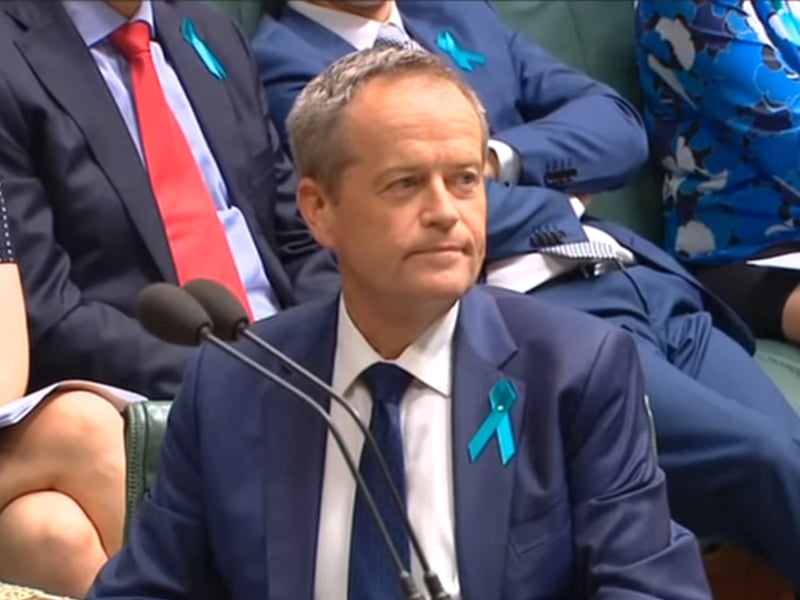The sharing of public sector data will significantly increase after legislation opening up a “new path” for this passed Parliament with bipartisan support on the last possible day before the upcoming election with the Opposition securing a number of amendments.
The Data Availability and Transparency Act passed both houses of Parliament on Wednesday with a number of bipartisan amendments from the previous version of the bill, which was introduced to Parliament in late 2020.

The data-sharing reforms have been in the works for more than five years following a Productivity Commission report in 2016 which recommended a new scheme. The Coalition has been consulting on the bill since mid-2018 but the plan stalled when the Opposition signalled it would vote against the bill in a dissenting report as part of a Senate inquiry into it.
Shadow Government Services Minister Bill Shorten has been working with the government on the bill over the last year and has secured a series of amendments, securing its passage through the Senate on Wednesday night, one of the chamber’s last acts before the May election.
The Act is the bedrock of the government’s data strategy, and facilitates the establishment of a Data Commissioner as a statutory role.
It provides a “new path” for the sharing of data which is currently blocked by secrecy provisions, and will see more data on Australians shared by departments and agencies. There are three permitted uses for the sharing of data: the delivery of government services, to inform government policies and programs, and for research and development.
The bill allows for the sharing of public sector data with federal and state governments and Australian universities.
The amendments agreed to by the government and Opposition include a requirement that the data only be shared with Australian organisations and not with the private sector, for a review of the scheme within three years and a sunset clause in five years.
Speaking in Parliament on the bill, Mr Shorten said the new version of the bill now strikes the right balance between privacy and opening up data to deliver better government services.
“I believe that the most troubling aspects of the original bill have now been mitigated. In its new form, the bill now essentially removes some of the barriers to data sharing between state and federal governments and Australian universities for specified purposes and with the approval of the Data Commissioner,” Mr Shorten said.
Employment Minister Stuart Robert confirmed that amendments to the data-sharing bill will “clarify and enhance” privacy protections, introduce new national security safeguards and ensure the scheme won’t be extended to the private sector “during initial establishment”.
“Underpinned by strong safeguards and simplified efficient processes, the scheme lays the groundwork for world-class data-driven government services that will benefit all Australians. This is critical legislation to advance our collective vision for Australia to become a leading digital economy and data-driven society by 2030,” Mr Robert said.
“This legislation takes a significant step forward towards data-driven innovation across the economy, a step towards a future where policy decisions are enriched by strong data and government services are simple, helpful, respectful and transparent. Australians can have enormous confidence that the new scheme is world class and that data sharing is the safest and most effective it can be.”
Speaking in the lower house, shadow industry minister Ed Husic said the government has dragged its feet on the data-sharing reforms.
“It’s taken a hell of a long time to get to this bill to look at the frameworks around how that data is used and shared,” Mr Husic said.
“The first act that we got out of the Coalition was not to think about the open data requirements and the way in which government could use this much more beneficially; their first thought was to come up with a consumer data right, to make a buck out of it…I don’t have a problem with that, but it’s interesting that that was the priority of this government.
“As much as we need to ensure that the data’s available, that it is crunched through AI and that it is applied in beneficial ways, we do need to not think in a completely utopic way but just get the balance right. I think the best thing in this debate is not to be completely in a utopian frame of mind or a dystopian frame of mind but to just get the balance right.”
The bill passed the House of Representatives with only Greens MP Adam Bandt, George Christensen, Craig Kelly and Andrew Wilkie voting against it.
It soon also sailed through the Senate without debate, with the Greens and crossbench Senator Rex Patrick voting against it.
The previous version of the bill was slammed by human rights and civil liberties groups, which raised concerns about the privacy impacts and the sharing of public sector data with private sector organisations.
In the dissenting Senate report last year, Labor Senators labelled the bill “deeply flawed” and “weak, poorly designed and subject to abuse”.
Developing the scheme has already cost $20.5 million, with $11.1 million set aside from 2020 for its implementation.
Gayle Milnes was appointed as the new National Data Commissioner Designate earlier this year, and this will now be a statutory role overseeing the data-sharing scheme.
Do you know more? Contact James Riley via Email.

